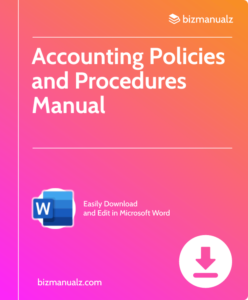What are Commonly Followed Accounting Rules and Standards in United Kingdom?

Accounting rules in the United Kingdom are paramount for transparency and accuracy in financial reporting. Knowing these guidelines is a must for businesses functioning in the UK, to keep their compliance and gain stakeholder trust. GAAP – Generally Accepted Accounting Principles – is the UK’s accounting practice. GAAP is a set of regulations that dictate how financial statements must be prepared and presented. Concepts such as accrual accounting, materiality, and consistency form the bedrock of correct financial reporting. What are commonly followed accounting rules and standards in United Kingdom?
Accounting Rules in the United Kingdom
The UK is committed to financial transparency and accuracy, and has implemented crucial accounting rules and standards. These ensure businesses adhere to a consistent framework, enabling effective financial reporting and analysis.
Companies must obey specific regulations, like the Companies Act 2006, which provides guidance on accounting matters like financial statement preparation, audit requirements, and disclosure regulations. The Companies Act looks to boost corporate governance and guarantee companies operate with integrity and openness.
The Financial Reporting Council (FRC) is and independent body responsible for endorsing high-quality corporate governance and reporting standards. The FRC monitors several standard-setting bodies, like the Accounting Standards Board (ASB) and the Financial Reporting Review Panel (FRRP). These organizations frequently update accounting standards to match international standards.
To guarantee compliance with UK accounting rules, businesses should engage qualified accountants or contact professional accounting firms. Keeping up with changes in regulations is essential to prevent penalties or damage to reputation related to non-compliance.
Organizations must recognize the significance of adhering to accounting rules. Not doing so could lead to severe repercussions such as legal issues, loss of investor confidence, or missed growth opportunities. Understanding and embracing these guidelines not only promotes financial integrity, but also showcases a commitment to transparent financial reporting.
Knowing commonly followed accounting rules in the UK and consulting experts when needed, can help businesses confidently sail through complex financial waters while safeguarding their interests. Embracing these standards not only guarantees compliance, but also builds a strong foundation for long-term success in the competitive business world. Stay updated, stay compliant, and unlock the full potential of your business.
Let’s explore some key aspects of accounting rules in the UK:
| 1 | The Companies Act 2006 | Mandates companies to prepare and disclose annual financial statements. |
| 2 | International Financial Reporting Standards (IFRS) | Set out by the Financial Reporting Council (FRC). Establishes principles for financial statements. |
| 3 | Generally Accepted Accounting Practice (UK GAAP) | For smaller entities or those not required to adopt IFRS. |
Not only this, but the UK has embraced digitalization in accounting practices. Cloud-based accounting software optimizes efficiency and accuracy, and offers real-time information sharing.
These accounting rules aim to provide reliable data for decision-making. Proper adherence ensures fair presentation of a company’s financial health, which boosts stakeholder confidence.
An amazing fact: 89% of private UK companies implement IFRS standards voluntarily, demonstrating a commitment to transparency and global alignment. Accounting rules for particular industries also exist. Where creativity meets Excel spreadsheets, and numbers come to party!
Industry-Specific Accounting Standards
Industry-specific accounting standards are essential for financial reporting in the UK. They provide particular directions and criteria for companies in different industries, to guarantee accurate and dependable financial statements. To comprehend the breadth and diversity of these standards, let’s investigate some key industry-specific accounting standards applicable in the UK.
| Industry | Accounting Standard |
| Banking and Financial Services | International Financial Reporting Standards (IFRS) |
| Insurance | FRC Insurance Accounting Directive |
| Retail | Funding Retail Accounting Standards Board (FRASB) |
| Agriculture | FRC Statement of Recommended Practice (SORP) |
The banking and financial services sector use International Financial Reporting Standards (IFRS) to make sure transparency and compatibility in financial statements. Insurance companies are guided by the FRC Insurance Accounting Directive. This provides precise guidance on recognition, measurement, presentation, and disclosure of insurance contracts.
Apart from these well-known standards, the retail industry follows the Funding Retail Accounting Standards Board (FRASB) framework. This ensures uniformity in reporting sales revenue, inventory valuation, and leases.
The agriculture sector has its own set of rules as specified in the FRC Statement of Recommended Practice (SORP). These rules address unique aspects such as biological assets’ valuation and crop production accounting.
It is important to understand industry-specific accounting standards for precise financial reporting across various sectors. Following these guidelines allows businesses to present their financial statements in a clear and standardized way.
Looking back, the emergence of industry-specific accounting standards in the UK can be traced to the need for exact and dependable financial info. As businesses in different sectors expanded, individual challenges arose. This necessitated customized accounting frameworks. These sector-specific standards have developed over time to address industry-specific complexities and promote transparency and comparability in financial reporting practices.
Brexit is causing a stir and may render accounting rules in the UK as reliable as a politician’s election pledge.
Impact of Brexit on Accounting Rules in the UK
Brexit has made a big impact on accounting rules in the UK. Leaving the EU caused lots of changes in finance reporting standards and rules for companies. Businesses had to adjust their accounting methods.
The UK now has its own special accounting standards – UK Generally Accepted Accounting Principles (GAAP). They are tailored to the UK businesses’ needs. Companies must also give extra info in their financial statements. This info helps people make decisions and ensures there is accountability.
It is essential for businesses to stay up to date with the accounting rule changes. Failing to follow the new rules could lead to fines, legal issues, or hurt the company’s reputation. So, it’s important to get help from experts who know UK GAAP.
Counting sheep is more fun than learning debits and credits – this article is done!
Accounting Rules and Standards in United Kingdom
Accounting regulations in the UK are essential for maintaining financial transparency and accountability. Following these rules helps businesses ensure accurate financial reporting and ethical practices. For example, companies must adhere to Generally Accepted Accounting Principles (GAAP) and International Financial Reporting Standards (IFRS).
The Financial Reporting Council (FRC) also sets the UK corporate governance code to promote good governance. Plus, the Companies Act 2006 mandates specific accounting requirements.
Professional bodies like ICAEW and ACCA are significant too. They set standards through their technical guidance and ensure high ethical standards in the profession.
It’s vital for businesses in the UK to follow these accounting rules and standards. This promotes transparency, accuracy, trustworthiness and ethical conduct. If not, there can be legal consequences, reputational damage, loss of investor confidence or even business failure.
Staying informed and embracing automation tools like accounting software is the way to go. This will keep your business on track with regulatory changes, build trust with stakeholders and help you thrive in a dynamic accounting environment.
Frequently Asked Questions
FAQ: What are commonly followed accounting rules and standards in United Kingdom?
Q1: What is the primary accounting rule followed in the United Kingdom?
A1: The primary accounting rule followed in the United Kingdom is the Generally Accepted Accounting Principles (UK GAAP).
Q2: Are there any specific standards that govern financial reporting in the UK?
A2: Yes, the Financial Reporting Standard (FRS) 102 is the standard that governs financial reporting for companies in the United Kingdom.
Q3: Are there any accounting standards specific to certain industries in the UK?
A3: Yes, there are industry-specific accounting standards, such as the Financial Reporting Standard for Smaller Entities (FRSSE) for qualifying small companies and the Financial Reporting Standard for Charities (FRSSE) for charitable organizations.
Q4: What is the role of the Financial Reporting Council (FRC) in the UK accounting standards?
A4: The Financial Reporting Council (FRC) is responsible for setting accounting standards in the United Kingdom and ensuring they are followed. They also provide guidance and monitor compliance with these standards.
Q5: Are there any changes expected in the UK accounting standards in the near future?
A5: Yes, the UK is transitioning to a new set of accounting standards known as the Financial Reporting Standard (FRS) 105 for Micro-entities. This standard will be applicable for micro-businesses and is expected to simplify accounting requirements for smaller entities.
Q6: Where can I find more information about UK accounting rules and standards?
A6: You can find detailed information about UK accounting rules and standards on the website of the Financial Reporting Council (FRC) or consult professional accountants and accounting firms for guidance.
















Leave a Reply